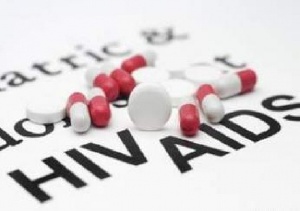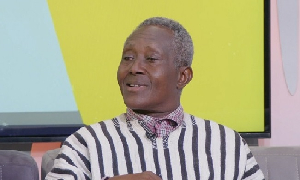Reports reaching Starr News indicate that schools in the Upper East region are striking out names of children born to HIV-infected parents from their registers and showing such children the door.
Private schools have been fingered as the main grounds where authorities are slamming doors in the sorrowing faces of children not because those minors are infected, but for the reason that their parents are living with the disease.
Citing an example in an interview with Starr News in Bolgatanga, the regional capital, a woman living with the disease (name withheld), who is also a leading member of the Network of Persons Living with HIV, said: “The schools are under pressure from parents to expel children of HIV-positive parents. In Bolga here, a child was in a private school. His mother is living with HIV. The parents of other children went to the school, ordering the school to withdraw that child; if not, they would take their children away. Meanwhile, the child was not positive.”
She continued: “They were putting pressure on the school. And because it was a private school, the school did not want to lose a lot of people because of one child. So, the school’s proprietor asked the parent to take away her child from that school. They (such cases) are numerous.”
When Starr News placed calls to some headmasters in the region and feigned a request for admission on behalf of an infected mother for her child, the reactions only confirmed the claim of the worried network.
Whilst a compassionate few readily accepted to offer an admission, the majority of those contacted in the recorded inquiry conversations recoiled, politely saying they had to do broader consultations first. Those who drew back promised to call back. But they never did.
Boy orphaned by AIDS ejected from home
In another example mentioned by the network, a fatherless boy, between 6 and 7 years of age, was orphaned recently in the regional capital after his mother lost a prolonged battle with Acquired Immune Deficiency Syndrome (AIDS).
Subsequently, the boy suffered the twin troubles of the disease: stigma and discrimination. He reportedly was banished from the house by relatives of his departed parents. Then, he was taken ill with a fever and reportedly was admitted at the Bongo District Hospital.
“Simply because the mother died with the disease, they don’t want the boy to stay in the house so that they, too, would not be affected. He fell sick. There was nowhere to sleep. The boy was only sleeping in the hospital. In the morning, he had to go and roam, come back, bath and sleep in the hospital. The Cuban doctors were feeding him. We had to look for help. Somebody came, willing to send him away. So, he is in Accra now, in one of the orphanages, schooling,” a member of the network narrated.
The orphan’s plight reflects a silent wave of destabilising dilemma confronting children too early in a region where the ravaging flames of stigma and discrimination are far from extinguished.
Alarmed CSOs call for intervention
“It’s becoming unbecoming. We need to call upon the School Health Education Project (SHEP) coordinators to deepen the awareness against stigma and discrimination for people to know that you can live with persons living with HIV/AIDS without any harm,” said Nicholas Cudjoe Kumah, Country Director of Afrikids Ghana, a child rights organisation said to have relocated many of such children to new environments even outside the region.
School-based discrimination is not the only horror stigmatised children have got to deal with in the region. Loneliness is also eating away at their health and self-esteem as their peers, having received stern caution from their uneasy parents, also bar them from both indoor and open-air games.
“We need to intensify our educational campaign because stigmatisation is now a very big concern. How can people who are tutored ask their children not to play with other children whose parents have HIV/AIDS? The Ministry of Education, Ghana Education Service and other stakeholders need to intervene; if not, we would reach a stage nobody would want to visit any health facility to know his or her HIV status. It is unthinkable and condemnable,” Noble Asakeya Alagskomah, Director of the Centre for Youth Welfare and Development (CYWD) and Upper East Regional Chairman of the Ghana Coalition of NGOs in Health, told Starr News.
AIDS Commission to do door-to-door testing
Even as schools reportedly are shutting their doors on children of infected parents and neighbours denying their existence, the Ghana AIDS Commission has announced it would soon embark on a door-to-door HIV testing exercise.
That exercise is to help the commission, and for that matter the country, meet a global target of ensuring that 90% of people living with HIV know their status by the end of 2020. The target is the first of a set of three objectives aimed at ending the scourge of HIV/AIDS by the year 2030. The pursuit of that first goal is referred to as the First 90 Campaign.
The second target, dubbed the Second 90 Campaign, is to ensure that 90% of those diagnosed with HIV are put on treatment. Labelled the Third 90 Campaign, the third target is to guarantee that 90% of people put on sustained treatment have their viral load so suppressed that the virus in their systems is not detectable.
“The campaign is special because it is mobilisation of communities. We want to do mobile HIV testing services. Like the politicians do house-to-house, we are also going to do house-to-house so that many people will know their HIV status. People are positive but they don’t know. There is one thing about HIV. If you go and talk to people in a community to go for a test, forget about it. But when you send the services to them and you talk about the importance of knowing your HIV status and you talk about the fact that you will be provided with pre-counselling to make an informed decision, you can be sure of a remarkable success,” Golda Asante, a technical coordinator at the Ghana AIDS Commission, told Starr News in Bolgatanga.
Stigmatised patients dump drugs
Stigma has remained a serious barrier standing in the way of those who want to know their status. This is according to the Ghana AIDS Commission’s technical coordinator for the Upper East, the Upper West and the Northern regions, Nuhu Musah.
“We tend to talk negative things about people who are infected. And in fact, sometimes, the way we talk about the infection discourages them from continuing their medications. And because they want to hide and take the medications, they finally stop the treatment. That is very dangerous. Meanwhile, if you are consistent with your treatment, it will come to a time that you have HIV infection but you cannot infect other people. HIV is real. But treatment is more real,” Mr. Musah said in an interview with Starr News.
Whilst infection has been dominant among the youth in the region, statistics show that the prevalence of the disease dropped from 1.7% in 2013 to 1.4% in 2014.
In May, this year, the Upper East Regional Minister, Albert Abongo, observed that “Coverage of Prevention of Mother to Child Transmission (PMTCT) services and Anti-Retroviral Drugs (ARDs) also increased” between 2013 and the following year.
He made that observation when stakeholders gathered in the regional capital to design the region’s own format for a successful First 90 Campaign. Each of the country's ten regions is expected to draw up local plans suitable for realising that target by the year 2020.
General News of Monday, 13 June 2016
Source: starrfmonline.com

















